Gord Downie
1964 – 2017
“First thing we’d climb a tree and maybe then we’d talk,
Or sit silently and listen to our thoughts
With illusions of someday casting a golden light
No dress rehearsal, this is our life”
You are currently browsing articles tagged Loss.
“First thing we’d climb a tree and maybe then we’d talk,
Or sit silently and listen to our thoughts
With illusions of someday casting a golden light
No dress rehearsal, this is our life”
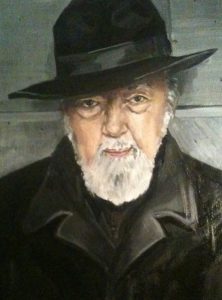 I find myself moved to an unexpected degree by the recent death of that giant of the British theatre – Sir Peter Hall – at the age of 86.
I find myself moved to an unexpected degree by the recent death of that giant of the British theatre – Sir Peter Hall – at the age of 86.
It is a fact of life I suppose that, once one enters one’s autumnal years, the deaths of those with whom one is familiar – whether actually close or not – will have a cumulative and increasing impact. There have been losses over the past few years amongst that small group whom I personally hold to be ‘heroes’ which have been hard to take. Inevitably that number is only going to increase.
Peter Hall was not – for me – directly among that coterie. I am slightly ashamed to admit that I saw few of his many productions and – with rare exceptions – they do not feature in my personal canon of influential experiences. This is not in any way to denigrate the value of his vision, talent or achievement; in such matters opportunity and circumstance set us all on our own particular paths.
It is impossible, however, not to be overwhelmed by his impact and influence on British and international theatre during the post-war years. Consider:
The news of Sir Peter’s death stirs a couple of thoughts and memories.
The National Theatre’s new home was opened in 1976 with a production of Howard Brenton’s ‘Weapons of Happiness‘ in the only one of the three theatre spaces then operational. I see from the InterWebNet that it ran for 41 performances – at one of which I was present. I marveled at the still unfinished building and at the wonderful standard of the production. The National was to become a most important venue for me – I have seen many productions there over the years; done the backstage tour more than once; participated in youth theatre workshops in its rehearsal rooms… and met the Girl for our first proper date in the bar outside the Lyttelton Theatre.
I am also a fan of the Rose in Kingston. Having been at school in Kingston and subsequently involved with youth theatre in the surrounding area, I was only to keenly aware of the lack of a theatre of any sort in what is an important centre to the south of London. I am delighted that the Rose now so splendidly fills that gap.
One sadness regarding Sir Peter’s last years was his diagnosis with dementia in 2011. Having observed my mother’s decline over her final years it must have been particularly poignant to witness such an intellect brought so low for so long.
“Hard times require furious dancing”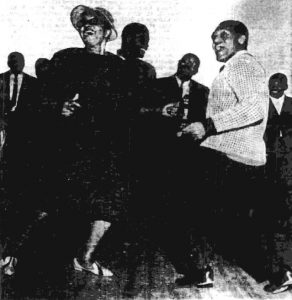
Poems by Alice Walker
Sometimes it is difficult to know quite what to write…
There was a relatively brief period – of which my recollections are still very clear – back towards the end of the last century during which it seemed that a corner had been turned and that the world was after all going to become a better place.
The Berlin Wall had fallen and the Iron Curtain had been rent asunder. Apartheid had been consigned to the trashcan of history and there was hope of a long-awaited resolution to the Irish question. Reaganism and Thatcherism had been kicked – if not actually into then certainly in the general direction of – the extremely long grass.
Things could only get better…
Then came the millennium… and we all know what happened next!
The further that recent history descends determinedly into farce the harder it becomes to conceive any rational view of it.
In the UK the tory party – clearly considering its brilliant strategy of holding (and losing) an entirely unnecessary referendum on leaving Europe to be an unqualified success – repeated the exercise by calling (and losing its majority at) an entirely unnecessary election. Seems that the tories – believing that they currently face no viable opposition from other parties – have determined to do the deed themselves and have emptied the barrels of the shotgun into both feet simultaneously.
One might take some pleasure from the unexpectedly reasonable performance (certainly with regard to its recent history) of the UK labour party, were it not for the fact that they seem to be enthusiastically celebrating losing the election by some fifty seats! Strange days indeed!
Then – of course – there is Trump! Trump!! How on earth did the world get from Obama to Trump?!
Of recent terrorist atrocities throughout the world it is also hard to know what more can be said – though it is clearly important to say something if only to reinforce that which we all know already – that this too shall pass. However painful for those directly involved, in retrospect it will become clear that in the grand sweep of world progress these small tragedies will be shown up for what they truly are – utterly meaningless and mindless.
One of the truest things I have read recently concerning these hideous events was penned by Guardian journalist Hugh Muir under the banner “This is a war on joy“:
“There is no obvious or significant ambition to destroy the pillars of the state: the men who use cars and vans as weapons and strike at random with foot-long knives aren’t obviously seeking to obliterate army barracks or police stations or the Bank of England. Theirs is a war not on the foundations of a free society or on our vital infrastructure, but on people enjoying the benefits of a free society. It is, in many ways, a war on joy, motivated by a warped sense of piety.
We go out and dance and drink and eat. To zealots, these things are decadent and trivial. Yet they are in themselves small acts of political symbolism: we go where we like, do what we like, wear what we want, we love whom we choose, because we have a social framework and a political system that largely allows us to do that. If the extremists cannot dismantle the system, or the foundations that underpin it – and they know they cannot – then they seek to strike and terrorise ordinary citizens who benefit from the gaiety it offers and the freedom it brings…
…But there is a bigger danger, and it is that we now start to think twice about the things that bring joy – the night in a pub or a music-filled bar or club, the evening of shared experience in a public place, the mass sporting events, the standing-room-only concert halls, the shopping malls, the cinemas, the theatres – the many experiences that give life texture and richness. The risk in those places isn’t likely to disappear any time soon, for they seem to encapsulate everything the murderers hate. But the risk will always be minimal; we are going to have to price it in. How we work, how we play: they are two sides of the same coin. Even at a time as painful as this, the biggest risk is that we let the zealots rob us of what makes us who we are.”
You heard the man… Go out and spread joy!
Tags: Beliefs, Loss, Modern life, Politics
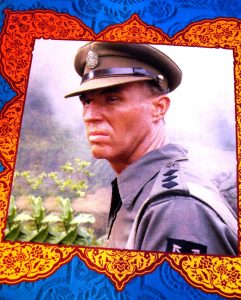 It was with great sadness that we heard the news over the weekend of the passing of that wonderful British actor – Tim Pigott-Smith.
It was with great sadness that we heard the news over the weekend of the passing of that wonderful British actor – Tim Pigott-Smith.
Still performing on the stage in his seventieth year, Tim Pigott-Smith was amongst the very best of his generation of thespians and was duly awarded an OBE in this year’s New Year Honours for his services to drama. His career encompassed film, TV and stage – with wide screen appearances in films such as ‘The Remains of the Day’, ‘V for Vendetta‘, ‘Clash of the Titans‘ and ‘Quantum of Solace‘, and starring stage roles in (amongst many others) ‘King Lear‘, ‘King Charles III‘, ‘Enron‘ and ‘A Delicate Balance‘.
It was a TV role, however, that was to make him a household name; the part of police superintendent Ronald Merrick in ITV’s 1984 adaption – under the title ‘The Jewel in the Crown‘ – of Paul Scott’s epic quartet of Raj novels. Pigott-Smith deservedly won a BAFTA award for his portrayal of this complex and flawed character, standing out even amongst the glittering array of talent that had been attracted to this vast and ambitious project.
I was certainly far from alone in declaring in 1984 that this be the finest television drama that had yet been made; beautiful filmed and acted, thoughtful adapted and deeply thought provoking to view, complex, stirring and heart-breakingly moving. This was television drama as the highest possible art form. In the three decades since the series’ first showing I have still seen nothing to compare with it.
We were fortunate enough to have met Tim Pigott-Smith on a number of occasions through friends of ours. For once the old adage that one should never meet one’s heroes seemed simply not to apply in his case. He was a complete gentleman, generous with his time and attentions and an excellent conversationalist. There is no question that he will be greatly missed.
I think that it is perhaps time to re-watch “The Jewel in the Crown“…
I was greatly saddened to hear yesterday of the death (at the grievously early age of 61) of Beau Dick – master carver and hereditary chief from the Kwakwaka’wakw First Nation.
Beau Dick was the subject of a posting on these pages back in January 2015 – composed before we had even moved to these shores. I make no apology for again referring the gentle reader to that item – which hopefully gives just the slightest hint as to the nature of the man and his craft. We were lucky also to have been able to see some of Beau’s work at the “Box of Treasures” exhibition at the Bill Reid gallery in Vancouver in the September of that year.
Of course, my words could be no substitute for viewing the works themselves, or – in Beau’s case – to hearing him speak of his art and culture. To that end I am including a couple of video clips that should enlighten and delight the novitiate.
https://www.youtube.com/watch?v=k212KuRfQZw
(Note: Should you have received this post by email circulation you may not be able to see the embedded video clips. Should that be the case this link will take you to the original post, in which they should render correctly)
Tags: Art, British Columbia, Loss
Invictus
Out of the night that covers me,
Black as the pit from pole to pole,
I thank whatever gods may be
For my unconquerable soul.
In the fell clutch of circumstance
I have not winced nor cried aloud.
Under the bludgeoning of chance
My head is bloody, but unbowed.
Beyond this place of wrath and tears
Looms but the Horror of the shade,
And yet the menace of the years
Finds, and shall find me, unafraid.
It matters not how strait the gate,
How charged with punishments the scroll,
I am the master of my fate:
I am the captain of my soul
William Ernest Henley
On all too many occasions over the past five years I have found myself eschewing the gentle whimsy with which these meanderings are customarily imbued and instead penning some heartfelt lament for the state of a world in which acts of violence and horror have become almost commonplace. Watching from afar such scenes being played out on streets and in locations that are beyond merely familiar takes on a particular poignancy. My deepest condolences and sympathies to all those who have been affected by this latest atrocity, played out at the gates of the mother of parliaments in London.
I find it impossible to imagine what could possibly go through the mind of someone who could commit such a heinous crime. What I do know is that – should such a creature have any means of rational thought whatsoever – their reasoning could not possibly be that the act that they are about to perpetrate could make the slightest difference to – or to advance in any way at all – whatever cause or belief it is that they espouse.
Put simply, terrorism – the purpose of which is presumably to sew fear in the minds of a population – does not work! Further – I can think of few places (other perhaps than Glasgow!) that it might work less than in London. I had drawn to my attention this morning these two headlines following yesterday’s incident:
“You’re not even in our top five worries, Londoners tell extremists”
“Londoners show defiance by remaining unfriendly and quite impatient”
This stoic response should come as little surprise. The gentle reader will recall that during the second world war Blitz some 32,000 lives were lost, 87,000 persons were seriously injured and more than a million properties destroyed or damaged in London alone. What might be less well known is that over the decades since the IRA’s mainland campaign started in the early 1970s London has been subjected to in excess of two hundred different terror assaults.
There is little more to say. Didn’t work then… Won’t work now!
Tags: Beliefs, Loss, Modern life
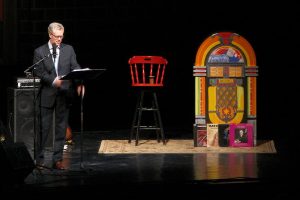 Before I came to Canada in 2015 I was entirely unaware of Stuart McLean, or indeed of the much loved weekly CBC Radio show – The Vinyl Café – that he hosted for more than twenty years.
Before I came to Canada in 2015 I was entirely unaware of Stuart McLean, or indeed of the much loved weekly CBC Radio show – The Vinyl Café – that he hosted for more than twenty years.
I am absolutely certain that the Kickass Canada Girl – who has long been numbered amongst the humourist and storyteller’s many fans – had for my benefit at some point extolled his virtues long before we crossed the pond for keeps, but I am a bear of advancing years (as well as very little brain) and there has been such a lot to learn (this is called “getting your excuses in early”!).
Once in Canada, of course, and having had the opportunity to experience the show ‘in the flesh’ (so to speak) I rapidly became a convert too. It was therefore deeply saddening to hear the news this week that Stuart had succumbed to the melanoma that he had been battling for more than a year.
I am way too much of a Vinyl Café neophyte to be able to indite anything remotely apposite at this point. I urge the gentle reader instead simply to ‘Google’ “Stuart McLean” and to peruse some of the many tributes to the man. This page of twitter reactions gives a good idea as to just how deeply loved he was.
For myself all I would say is that there was something about his writing and on-air manner that reminded me of how radio used to be when I was growing up in the UK, where my earliest exposure to the outside world came exclusively from the BBC’s ‘Home Service’ (later Radio 4). That’s pretty much as good as it gets in my book.
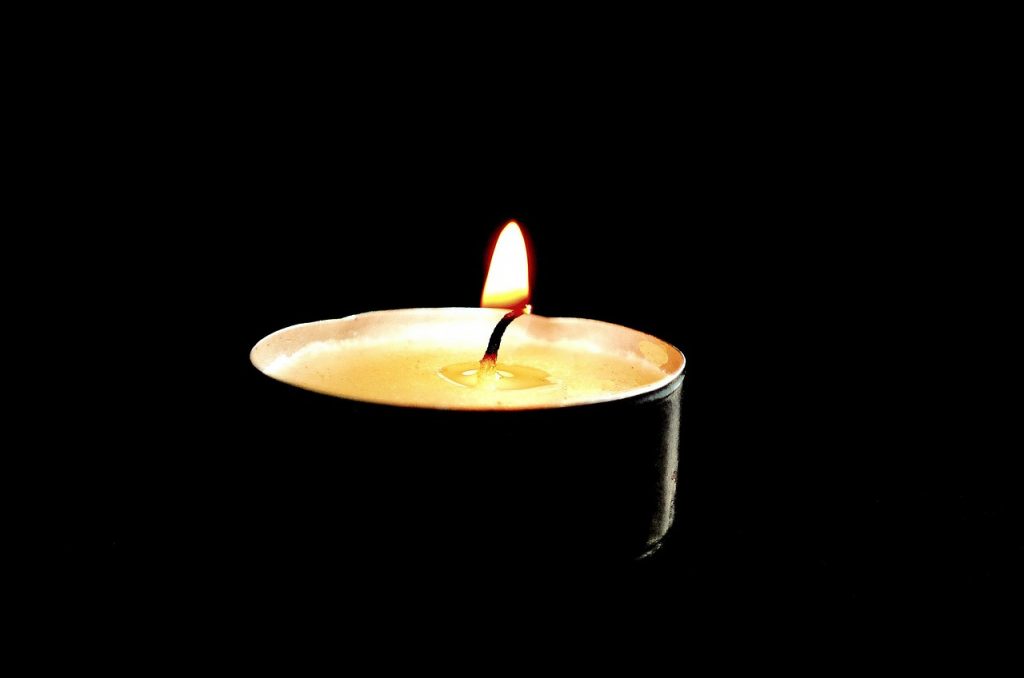
I heard there was a secret chord
That David played and it pleased the Lord
But you don’t really care for music, do you?
Well, it goes like this, the fourth, the fifth
The minor fall and the major lift
The baffled King composing Hallelujah
Hallelujah
Well, your faith was strong but you needed proof
You saw her bathing on the roof
Her beauty and the moonlight overthrew you
She tied you to her kitchen chair
She broke your throne and she cut your hair
And from your lips she drew the Hallelujah
Hallelujah
Baby, I’ve been here before
I’ve seen this room and I’ve walked this floor
I used to live alone before I knew you
I’ve seen your flag on the marble arch
But love is not a victory march
It’s a cold and it’s a broken Hallelujah
Hallelujah
Well, there was a time when you let me know
What’s really going on below
But now you never show that to me, do you?
But remember when I moved in you
And the holy dove was moving too
And every breath we drew was Hallelujah
Well, maybe there’s a god above
But all I’ve ever learned from love
Was how to shoot somebody who outdrew you
It’s not a cry that you hear at night
It’s not somebody who’s seen the light
It’s a cold and it’s a broken Hallelujah
Hallelujah
Tags: Loss
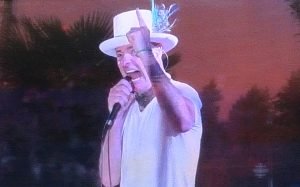 For three hours on Saturday night last Canada was ‘closed’. The Canadian Broadcasting Corporation’s (CBC) wall to wall coverage of the Rio Olympics was put on hold and there would even have been (had the hockey season yet commenced) a brief hiatus from the nation’s abiding passion.
For three hours on Saturday night last Canada was ‘closed’. The Canadian Broadcasting Corporation’s (CBC) wall to wall coverage of the Rio Olympics was put on hold and there would even have been (had the hockey season yet commenced) a brief hiatus from the nation’s abiding passion.
Much of the country instead settled in (or partied out) to watch the live streaming from Kingston, Ontario of the final ever concert by ‘The Tragically Hip‘.
Canadian readers will require no further explanation and can skip blithely ahead. For many of them ‘The Hip’ have provided an iconic soundtrack to Canadian life for the last three decades and more, capturing the essence of Canadiana to a degree matched by no other. The band is – however – largely unrecognised without these shores and, though they have achieved some recognition in the UK and elsewhere, the Americans don’t seem to get them at all. This naturally endears them all the more to the inhabitants of these fair lands.
Non-Canadians might yet wonder why – in the age of the endless resurrection of their careers by those old enough to know better – quite so much fuss has been made of ‘The Hip’s’ farewell. The answer is tragically simple. Lead singer, lyricist and poet, Gord Downie, has an incurable brain tumour. To suggest that the occasion of the final concert was emotionally charged would be an understatement.
Prime Minister Trudeau (apparently a huge fan) was in the audience and Downie took the opportunity to publicly hold his feet to the fire concerning election promises, particularly with regard to the matter of the treatment of the First Nations. It is most likely that the many fans of the band will use this exhortation to endeavour to ensure that there is no backsliding on the part of the Liberal government.
We attended a splendid ‘Hip Party’ hosted by our dearest friends in Saanichton, complete with big screen and sound system in the garden so that no-one would miss the show. We cheered – we sang – we danced – we shed many a tear… The moment – and the occasion – was duly celebrated.
I am, of course, a newcomer – both to this fair land and to ‘The Hip’. The making of a myth – however – is easily recognised by those for whom such rites are an essential part of our existence in this realm.
I am one such.
Tags: Canada, Celebration, Loss, Memories, Music
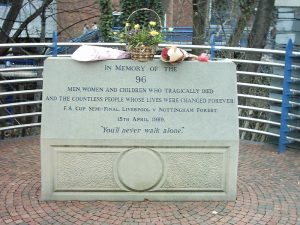 You might have thought that my recent post regarding the outcome of the second inquest into the causes of the deaths of the ninety six victims of the 1989 Hillsborough disaster would be my last word on the subject. I suspect, however, that there will be yet more to come as the saga continues to unfold over the years.
You might have thought that my recent post regarding the outcome of the second inquest into the causes of the deaths of the ninety six victims of the 1989 Hillsborough disaster would be my last word on the subject. I suspect, however, that there will be yet more to come as the saga continues to unfold over the years.
This truth was brought home yet again last night in harrowing fashion as I watched Daniel Gordon’s two hour documentary – ‘Hillsborough‘ – made for the BBC and ESPN. The first version of this brilliantly judged work was completed nearly two years ago and shown in the US and – subsequently – in New Zealand. It could not at that time be shown in the UK for legal reasons; for fear that it might prejudice the outcome of the second inquest which had then just begun.
The film has now been extended in the light of the outcome of that inquiry and can now finally be seen in the UK and elsewhere. Should you yet feel uncertain as to the import of these recent events – or should you even perchance still harbour some misconceptions as to the truth of what really happened on that dreadful day and throughout the intervening twenty seven years – I urge you to take the time to watch this chilling memorial to the suffering of the families whose loved ones did not return home from that intended day of celebration.
Though I have been reading about the tragedy since the day that it happened, even so I learned things from this film that I had not previously known. This merely demonstrates anew just how much the authorities tried to keep hidden over the past two decades and more.
For example, I did not know that there had been another not dissimilar crowd control problem at an FA Cup semi-final at Hillsborough – some eight years earlier. On that occasion the crowd at the Leppings Lane end had been allowed to spill out of the stands onto the border of the pitch itself to avoid the crush. When – during the post mortem to that event – it was suggested that there had been a lucky escape and that modifications might be required to prevent future injuries or deaths, the ground’s owners and engineers dismissed the suggestion and did nothing.
Indeed – in the intervening years matters were made very much worse as a result of the FA’s misguided attempt to combat the hooliganism which seemed endemic to the game during the 1980s. The standing room terraces at the Leppings Lane end of the ground were turned into pens by the construction around them of fences of spiked iron railings. When lightening did indeed strike a second time the supporters were unable either to escape onto the pitch or sideways along the terracing as had previously been possible.
In another unfortunate circumstance the vastly experienced police superintendent, Brian Mole, who should have been in charge of the crowd control operation on the day of the disaster, was moved to another district a couple of weeks prior to the event. This followed a ‘hazing’ incident some months before in which a young police constable was one night subjected to a mock abduction by masked gunmen posing as armed robbers but who were in fact colleagues from the constabulary. Those concerned were disciplined firmly and Mole – though having no involvement himself – was moved.
His place was taken – at two weeks’ notice – by a man who not only had little experience of supervising such major events but also clearly had little understanding of football or of the habits and motivations of its followers. David Duckenfield was responsible for the two key actions that shaped the tragedy that followed and the appalling campaign that succeeded it.
First, he took the decision – when the crush of Liverpool supporters trying to get through the totally inadequate number of turnstiles at the Leppings Lane end looked to be getting out of hand – to open one of the exit gates to allow a large body of fans through to relieve the pressure outside. This was done without first having either sealed off the immediate entrance to the two already packed pens which was directly in front of the exit gate, or of ensuring that there were an adequate number of stewards or police inside the ground to direct fans to the still mostly empty pens to either side.
Then – as the inevitable tragedy was still being played out immediately beneath the windows of the control box in which he was located – Duckenfield lied to Graham Kelly (the FA representative at the ground) telling him that drunken ticket-less Liverpool supporters had broken down the very exit gate that he had himself ordered to be opened. Kelly naturally believed what he was told by the senior police official present and wasted no time passing the information on TV commentators and journalists. Thus was born the false myth that the supporters were to blame for the deaths of the ninety six, which was then seized upon by those in charge of all of the authorities concerned as a means of covering up the truth as to the multiple liabilities for the fatalities.
Daniel Gordon’s documentary is not an easy watch but it is an essential one if we are to fully comprehend this recent period in our history, for it has implications far wider simply than those for game of football or for this one appalling, tragic, but completely avoidable incident.
Tags: England, Loss, Modern life, Politics, Sport
Recent Comments